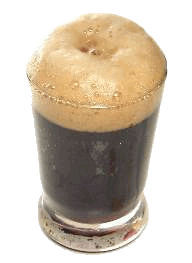Alcohol Consumption-How Much is Too Much and Too Little?
by www.SixWise.com
Most Americans drink alcohol. In fact, only about one-third
say they never drink, while the rest-about 66 percent according
to a 2002 Gallup poll-say they do drink on occasion. But with
what seems like almost daily studies alternately touting alcohol's
dangers and its benefits, many people are understandably confused:
just how much alcohol is really "OK" or even "good"
to drink?
Let's start out with the obvious: Drinking too much is bad.
That's because, when all is said and done, alcohol is a poison
and if you drink enough of it over time, it will affect nearly
every organ in your body as such. According to the Centers
for Disease Control and Prevention (CDC), heavy drinking is:
Note: A standard drink is 12 ounces of beer, 5 ounces of
wine or 1.5 ounces of 80-proof liquor.
Over time heavy drinking can result in numerous health problems,
not to mention put a strain on relationships and emotional
health, including:
-
Fatty liver
-
Alcohol hepatitis
-
Alcoholic cirrhosis, which can eventually cause
liver failure if drinking isn't stopped
-
Chronic gastritis (a daily recurrence of nausea
and sickness)
-
Pancreatitis
-
Brain damage (alcoholic dementia)
-
High blood pressure
|
-
Heart disease
-
Obesity (from the increased number of calories
consumed)
-
Stroke
-
Osteoporosis
-
Reduced fertility
-
Cancer (mouth, esophagus, liver, stomach, colon,
rectum and breast cancer may all be related to alcohol)
-
Alcoholism
|
Women and men are affected by alcohol differently, and women
may develop related health problems sooner than men and from
drinking less alcohol.
Some Drinking May be Healthy
Moderate drinking-one drink or less per day for women and
two drinks or less per day for men, according to the CDC-can
in fact have health benefits.
Heart disease: While heavy drinking increases the
risk for heart disease, high blood pressure and stroke,
moderate drinking has beneficial heart effects, particularly
to those most at risk-men over the age of 45 and post-menopausal
women. It appears to reduce the risk of blood clots in coronary
arteries that can lead to coronary artery disease and heart
attack.
Cholesterol: Related to heart disease, it appears
that moderate drinking may raise levels of HDL (good) cholesterol.
Dementia: Moderate drinking reduces the risk of
developing dementia, including Alzheimer's disease, as you
age.
Beer ... Wine ... What's the Difference?
|

When it comes to drinking, color matters. Dark beer
is healthier than light beer, red wine is healthier
than white.
|
When it comes to drinking, the type of alcohol does matter,
not so much in the sense of the alcohol itself but because
of other components in the drinks.
Red Wine: This is one of the best alcohol choices if you're
going to drink because red wine contains an antioxidant known
as resveratrol (it's in grape skins and red wine.) Resveratrol
belongs to the polyphenol family, which are known to fight
the effects of damaging free radicals. Along with fighting
free radicals, resveratrol reduces the risk of heart disease
and cancer and may one day be used to extend lifespan in humans-already
studies have found that it can extend the lifespan of yeast
cells by up to 80 percent.
One caveat: Wine is made from grapes and grapes contain sugar.
Drinking too much wine can, therefore, affect insulin levels
and blood sugar. People with diabetes and other conditions
that are monitoring their insulin levels should be aware of
this effect.
Dark Beer: This may also be a heart healthy choice, as it
appears to reduce the risk of blood clots. But not just any
beer will do-dark beer is rich in flavonoids, which, like
the resveratrol in red wine, have powerful antioxidant properties.
Says John D. Folts, PhD, professor of medicine and director
of the coronary thrombosis research laboratory at the University
of Wisconsin in Madison, "It's about color. You can see
the flavonoids in products on the shelf." For this reason,
light beer does not appear to produce the same health effects
(nor does white wine produce the same effects as red wine).
Another plus for beer: it contains silicon, a trace element
found in the hops that are used for flavor. Silicon in the
diet appears to fight against bone loss in men and pre-menopausal
women, according to a study published in the Journal of Bone
and Mineral Research.
Note: Beer is also broken down to a sugar in the body, and
as such presents a similar risk to insulin levels for diabetics
as do red wine and other alcoholic beverages.
|

The consensus? A drink here and there shouldn't harm
your health and may even be beneficial. But, if you
don't drink, the American Heart Association says you
shouldn't start for health purposes.
|
Not Into drinking? No problem.
While drinking a glass of red wine or a bottle of dark beer
(two for men) every day is not likely to harm your health
if you're healthy, and in fact may benefit it, most experts,
including those at the American Heart Association, say that
you shouldn't start drinking (if you don't already) just for
health purposes. You can always get plenty of antioxidants
in your body by eating fruits and vegetables, or, if you're
concerned that you're not eating enough, from high-quality
antioxidant supplements.
Some Things to Take Into Account
Definitions of heavy drinking vary from study to study. Some
define it as four or more drinks a day, some five drinks a
day or more for five days in a row, some more than two drinks
a day or one a day for women. So, when looking at the latest
research it's important to look at these details when translating
the findings to your own life.
Further, the U.S. Department of Agriculture and the U.S.
Department of Health and Human Services say that the following
people should not consume alcoholic beverages in any amount,
and of any kind:
-
Women who are pregnant or trying to conceive
-
People who plan to drive or engage in other activities
that require attention or skill
-
People taking medication, including over-the-counter
medications
-
Recovering alcoholics
- Persons under the age of 21
Sources
CDC:
Alcohol and Public Health
More
Americans Drinking Alcohol
BBC
News Alcohol
Dr.
Weil January 24, 2005
WebMD
Health
MSNBC